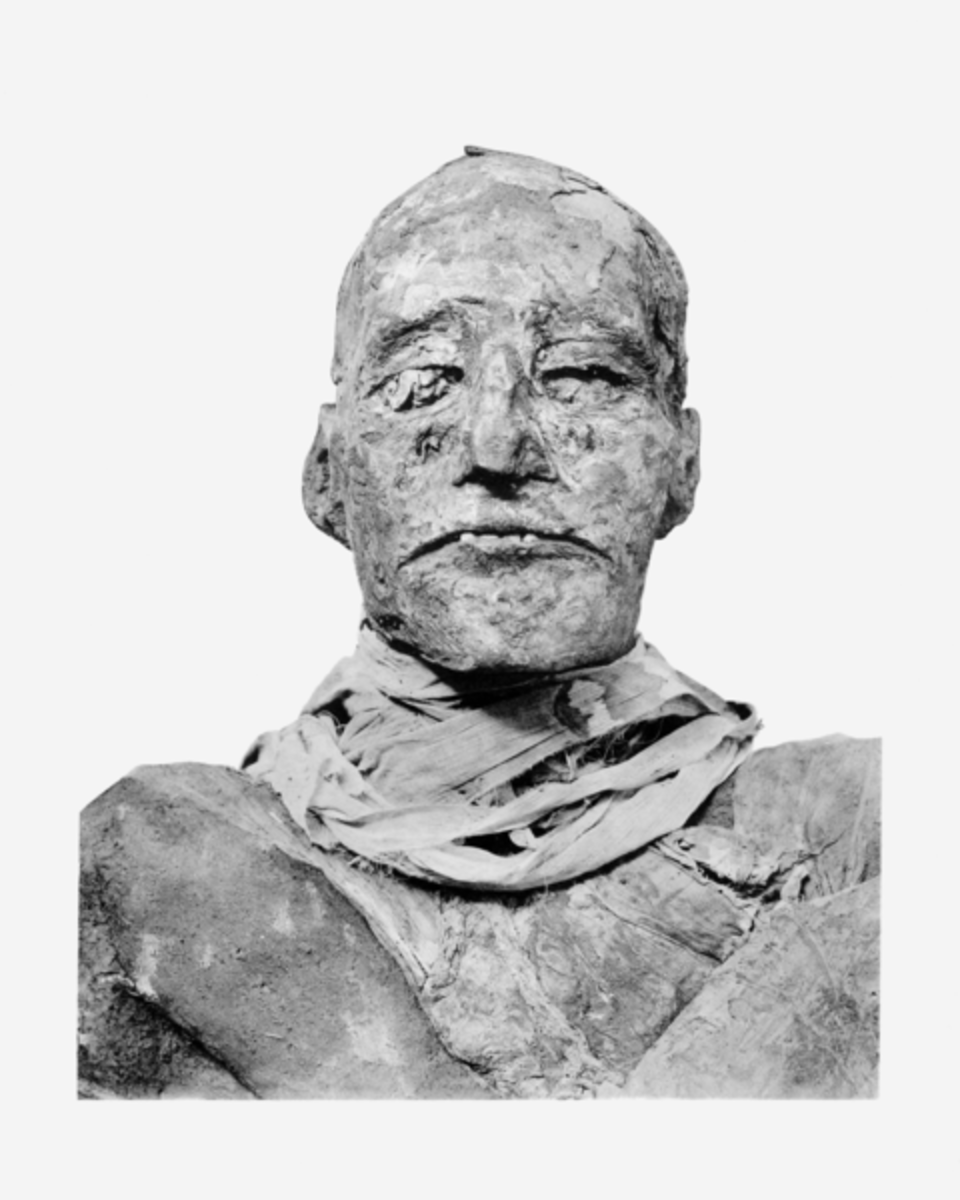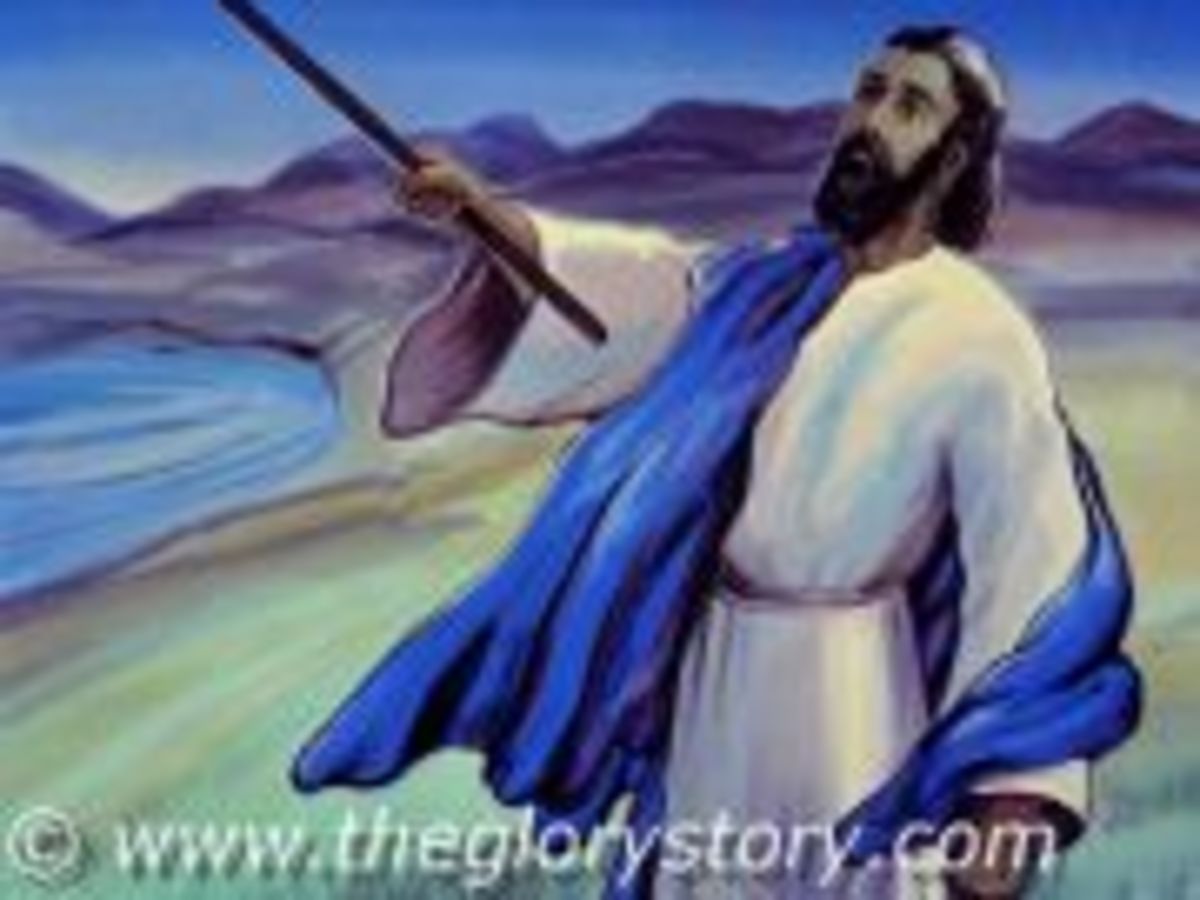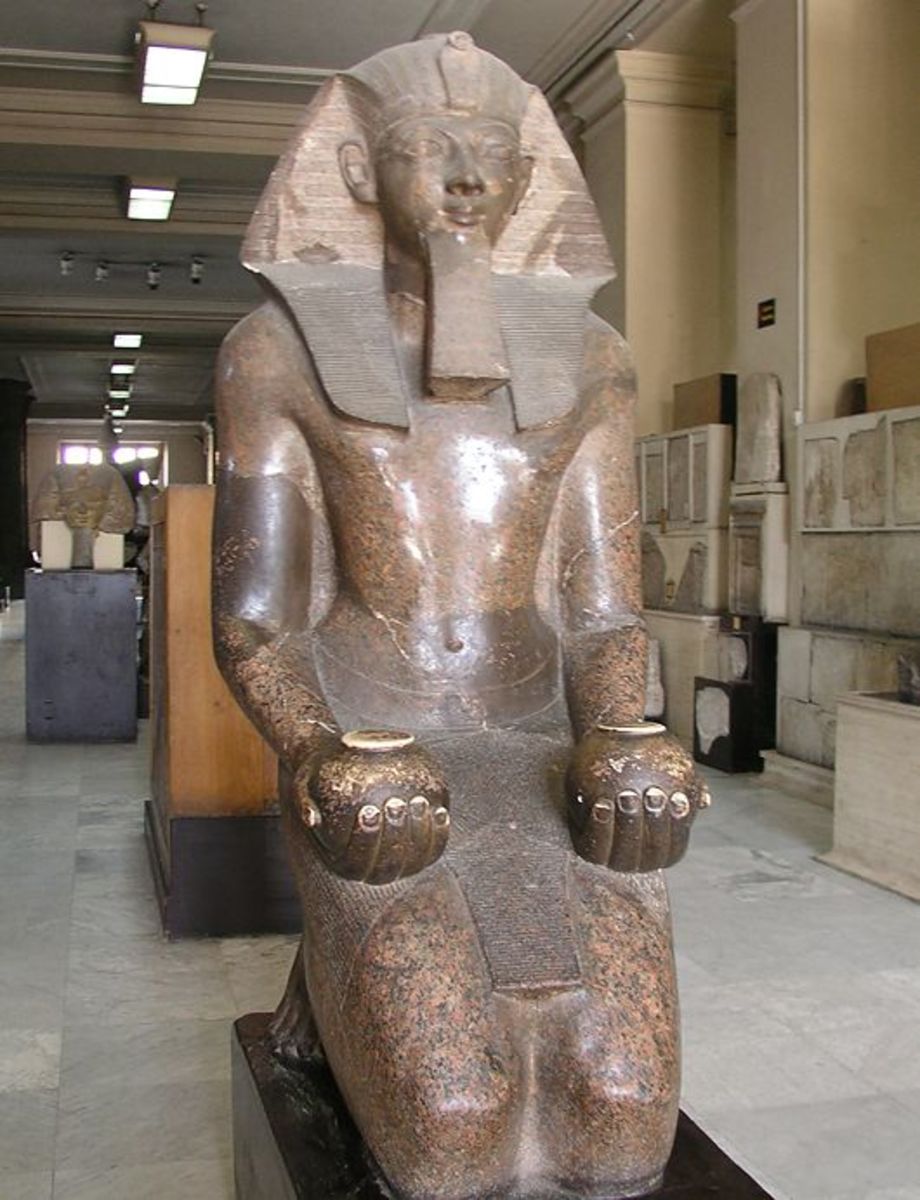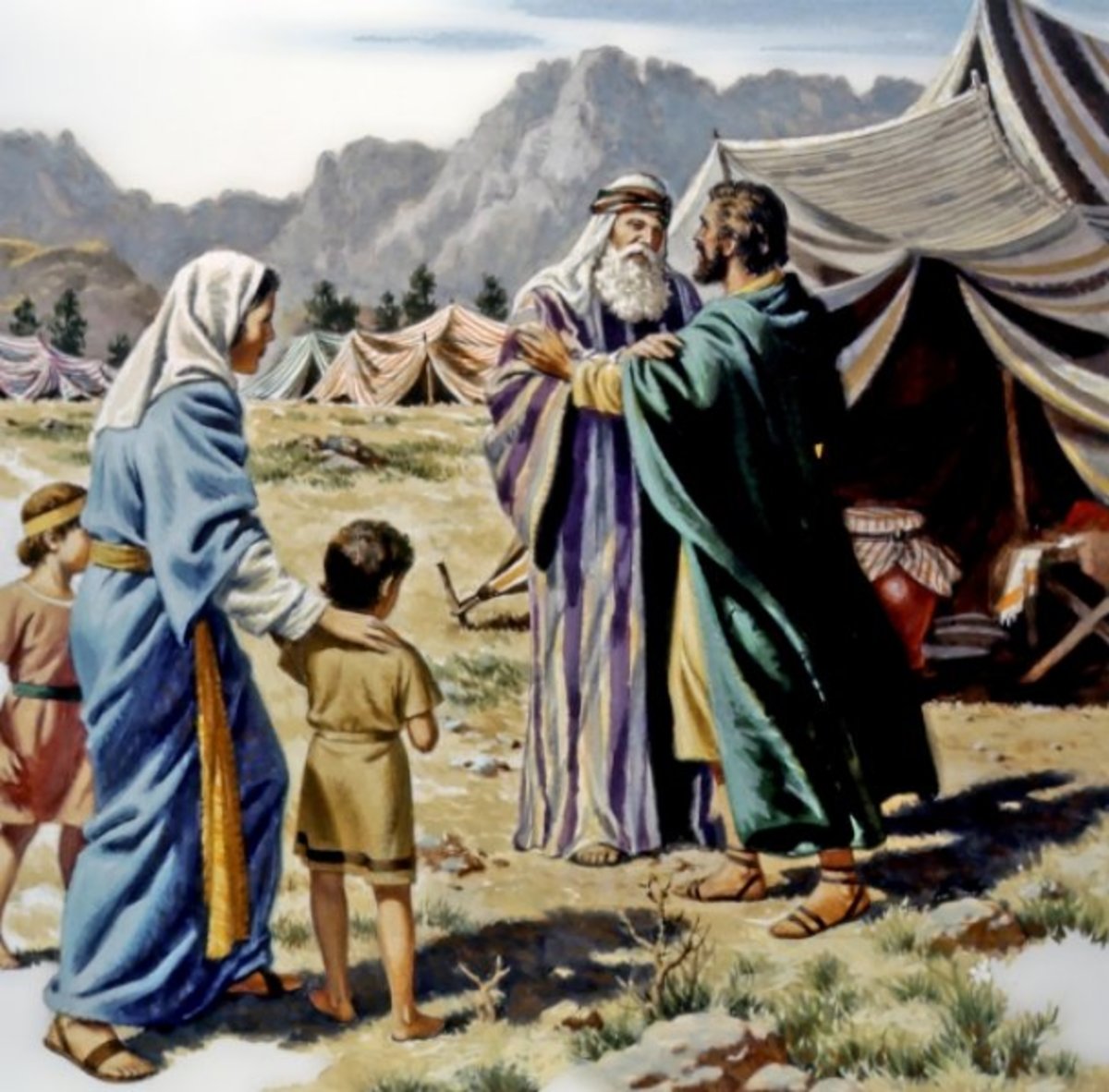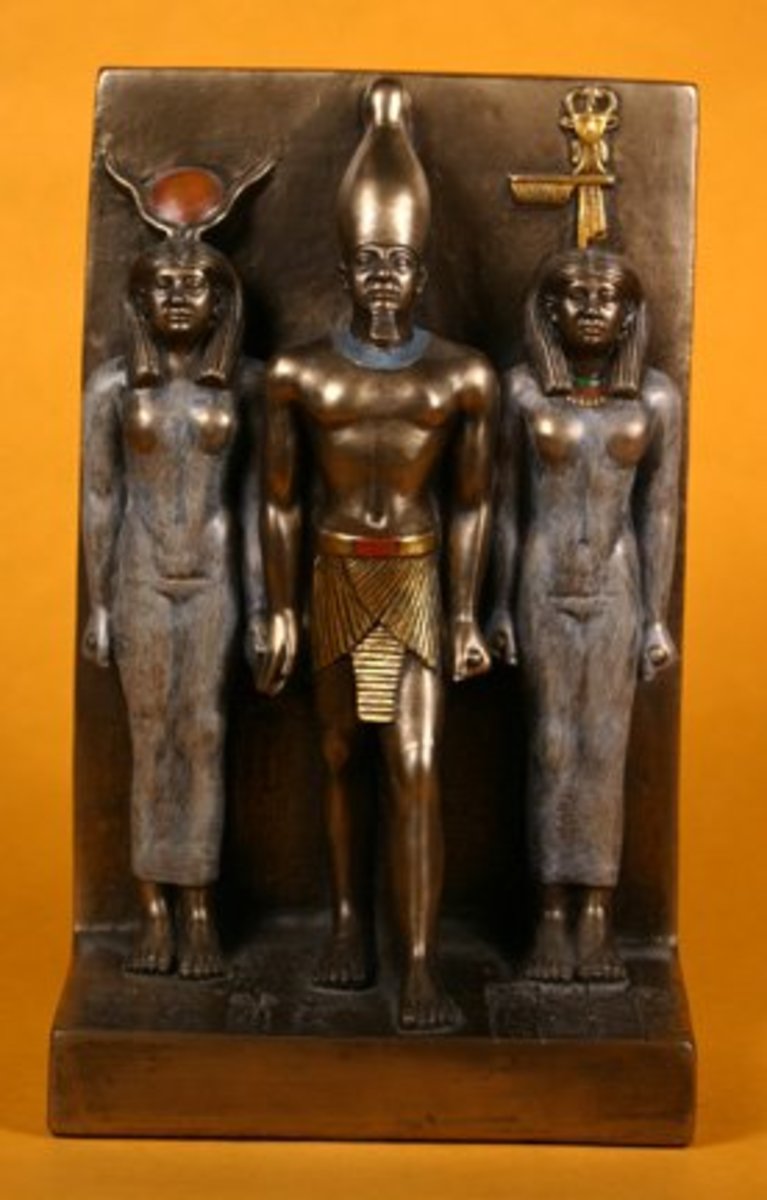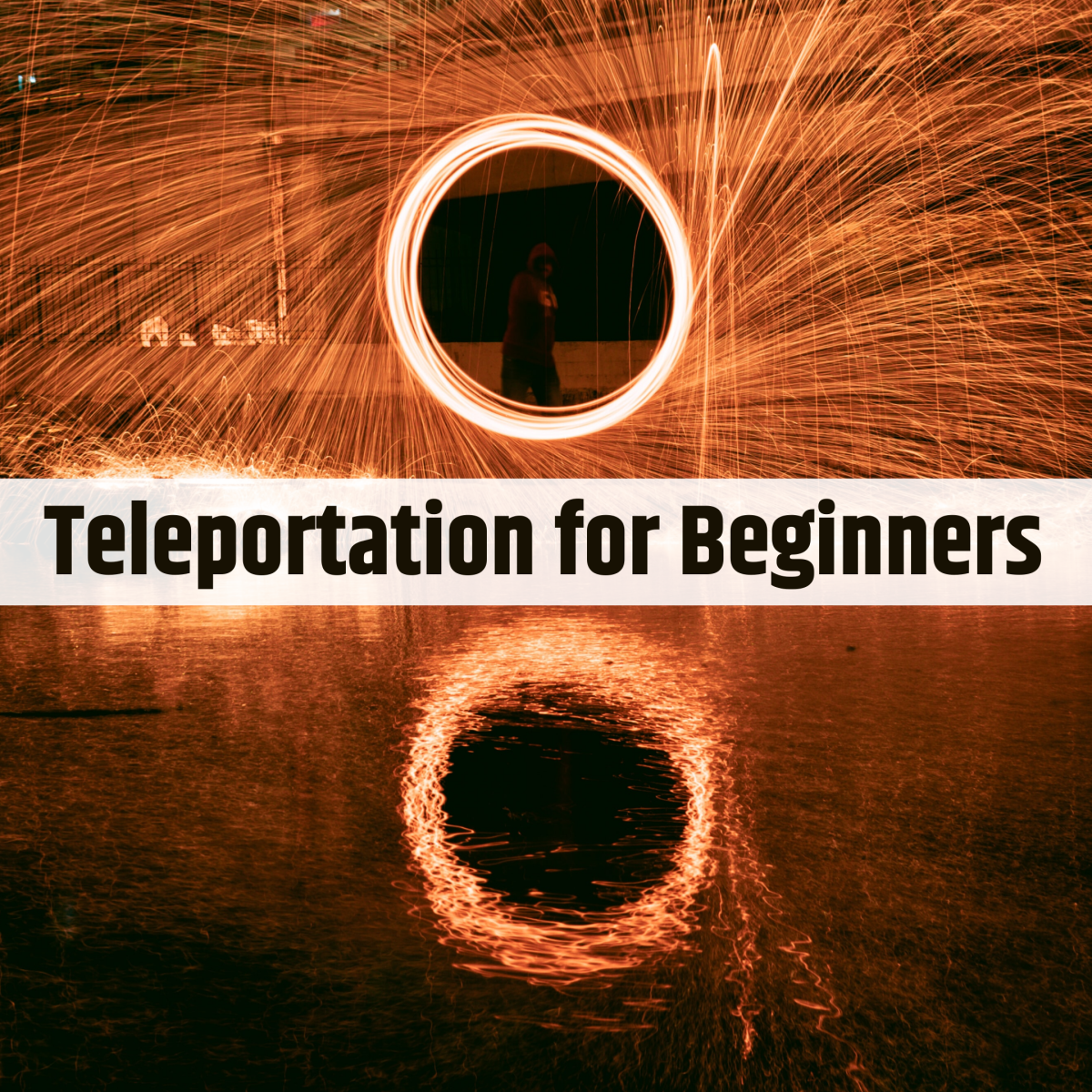The Exodus (part 2)
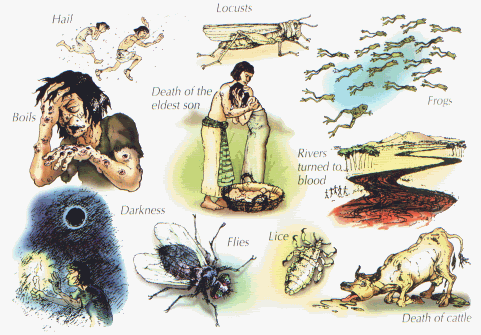
Please Reference the Hub, "The Exodus" (part 1)
The plagues. When I was little, my mother would play a dramatic interpretation of the Israelites' exodus from Egypt on tape, mostly so my brother and I would stop talking. We loved this, and it sounded so real to me, it was easy to believe. The families of the Israelites sounded like my family, the thick-headedness of the Pharaoh of Egypt made sense to me. The plagues were easy enough to imagine, with the sound effects of the tape. They sounded terrible. I related the plagues to the discipline of my parents--the preliminary scowl of my mother, followed by a verbal warning, and on it would continue with progressively clearer messages that I had better correct what I was doing. Wasn't God doing the same with the Pharaoh? But I'm an adult now, and do not consider the bible a work of fiction, as I have mentioned. What do I make of this now? What did I learn from the lectures we had in Egypt?
First, why would all of Egyptians have to suffer for the decisions of their insufferable leader? Wasn't he to blame since he was their king? When the situation is analyzed closely, the truth of the matter is that the Pharaoh could not have enslaved, nor oppressed the Israelites alone. In the same manner that Hitler could not have performed the mass murder of the Holocaust alone. We are responsible as individuals for the leadership we follow. The 'mob mentality' that influences so many to go with whatever sayeth the majority is a powerful driving force. It is usually only with time and distance that intelligent people, who were influenced in a negative way by the energy and collective thought of a mob, shake their heads at what they were driven to do. It is intense, but even when one thought drives a mob, it is not driven by one brain. We usually have the privilege as humans of not sharing a brain, and even in mob situations, at any point, a person can decide not to do what's being done.
The God of the Hebrews was making a show of power with the plagues, yes. The plagues were warnings that worse would come if Pharaoh would not permit the exodus. However, there was also the motivation of humiliating the Gods of the Egyptians. First, there was the god Hapi of the Nile, humiliated with the river being turned into blood. The magic practitioners were able to imitate this, but not reverse what happened. Then Heqet, goddess of frogs. The God of the Hebrews plagued them with frogs and their deity Heqet was left powerless. And so on. There are some thoughts that the Egyptian God of Wisdom Thoth, whose image was that of a monkey, was certainly consulted often on how to deal with the God of the Hebrews. As he was also rendered useless, there are some that speculate that this was where we get the expression, 'to make a monkey of someone,' when someone is proven to be foolish. I imagine, though, that there's probably some argument of that. It is, however, an interesting coincidence.
The 10th and final plague came with a warning, and for the Hebrews it meant the institution of the Passover observance. Egyptians and Hebrews alike were warned of the coming death of the firstborn of every household if specific instructions were not obeyed. (see the hub, "The Exodus (part 1)"). How barbaric! Consider this, however, Egypt had sent out a decree to kill every male child of the Hebrews because of how rapidly they were producing--Exodus 1:16-22. David Rohl supports this decree laid out in the bible in his book, "Pharaohs and Kings" when he speaks of the unusual amount of infant skeletons found in the region in archaeological digs. He reports them at 65% of all skeletons found. To His credit, the God of the Hebrews gave a warning, with the reward of salvation for the obedient. It was, as seems to be consistent in exam of the bible, only a small group that listened and obeyed. Think of Noah, Sodom and Gomorrah, accounts like these.
Prior to the 10th plague that historically lead to the exodus of the Jews from Egypt, a story told to this day as the method of pilgrimage to what is now Israel, the Israelites were assured that this was this last plague, and it would lead to their deliverance. Included in their instructions, was the public, doorpost display of the blood of a male sheep, or goat. It must be stated, the dominance of what was once the Egyptian empire is a marvel even today. Egypt was the most powerful, and intimidating society of its time. Their most notable Egyptian God, the one believed to have created all things was Amun, with the image of a ram. Know how much faith, and courage it would take for a group of desert people, with no king, to stand up to this society with the blood of the representation of the most sacred god of their captors on their doorposts. I had never heard this before my trip to Egypt.
The Exodus was a story I'd heard in childhood, and grew an appreciation for as an adult. I'm well aware that many would walk away from the account, scoffing at as a nice fable with a good lesson. Knowing this I thought of the author, Victor Villasenor in his biography, "Rain of Gold," chronicling his own family's exodus from Mexico during the war. He had heard stories from his family for years about how they'd survived, but the stories were so extraordinary he found them to be far-fetched, at best. He was an American, and the gibberish of his Mexican relatives sounded like mythology to his oh-so-sophisticated American soul. It wasn't until he devoted many years to the verification of the wild tales of his father, grandmother, and mother that he came to believe what he'd been told. They were telling the truth. But I suppose, that is one of the great glories of truth in the first place. It doesn't need to be believed, respected, accepted, or even understood to be true. It just is. As a person that has experienced many things that are difficult to believe, I appreciate this easily.
Now, why so specific instructions for Passover? Didn't the sons of Israel have enough to do to prepare to leave Egypt? Why would a Jewish celebration of emancipation have anything to do with Christians?

